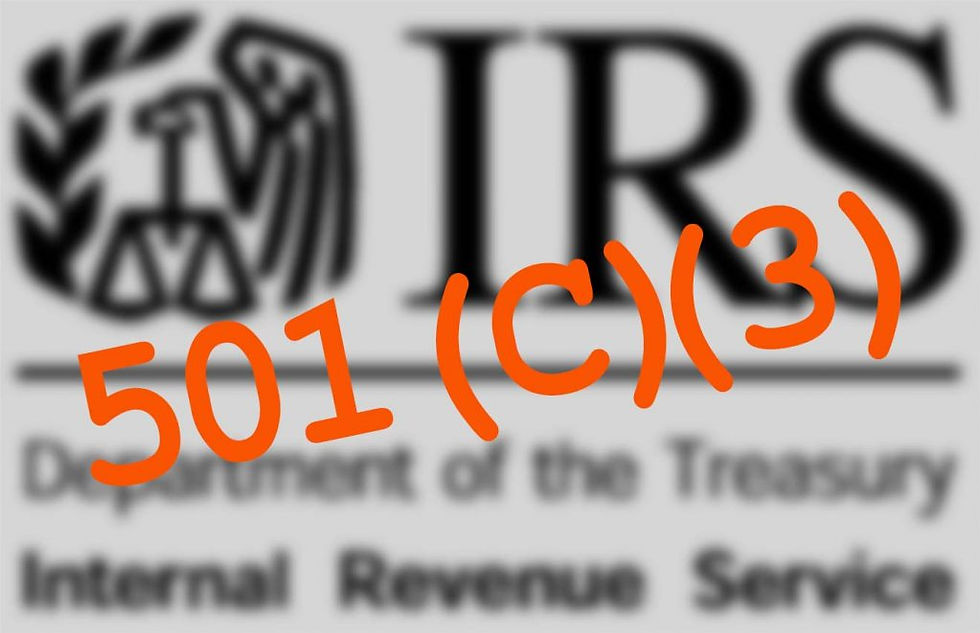The Basics of 501c3 Educational Organizations: A Guide to Understanding Tax-Exempt Status
- EZ 501c3
- Apr 28, 2023
- 4 min read
Education is the key to securing a more promising future, and there are numerous ways to give people of all ages and socioeconomic backgrounds access to educational opportunities. Starting a 501c3 educational organization could be the ideal option to accomplish your aims if you are enthusiastic about education and want to make a difference in your community.
The Federal government views charitable work done by private citizens and other non-profit organizations as essential to improving human civilization. Because of a lack of resources, the federal government itself cannot participate in the process. These philanthropic organizations can better assist society because of the numerous tax breaks that the federal government provides for them.
In this article, we are going to help you understand the 501c3 status as well as how your educational organisation can benefit from it. No matter if you are a teacher, a community leader, or a fervent supporter of education, this article will help you to evaluate the importance of charities in society.

What is a 501c3?
the United States federal government recognizes charities as important social institutions that benefit society. In order to enable organizations to aid people without worrying about their financial status, the Internal Revenue Service provides tax exemptions. Charitable organizations that are non-profits are given a unique status.
The Internal Revenue Code of the US government contains a special clause in this regard. According to the IRC, organizations including charities, private foundations, and religious institutions may be eligible for the 501(c)(3) designation. The IRS only accepts 501(c)(3)-designated organizations for tax exemption, despite the fact that it recognizes 30 different types of nonprofit and charitable organizations.
What is a 501c3 Educational Organization?
Education has always been the key to uplifting our society. As a result, the federal government of the United States has put forward several tools and policies to enable charitable organizations to provide education to children across the country.
Similar to a normal 501(c)(3) organization, the certification provides educational charities a tax-exempt status so that they are able to continue providing education to backward portions of society.
A 501c3 educational organization is distinguished from other NGOs by its commitment to education. These organizations are dedicated to offering the general public high-quality educational services, frequently with an emphasis on a particular field of study or group of people. A 501c3 educational organization might give continuing education courses to professionals, run research on a particular subject, or offer after-school programs for youngsters from disadvantaged backgrounds.
501c3 educational organizations are tax-exempt and rely mainly on donations and grants to finance their programs and services. This implies that they must abide by stringent IRS guidelines for how they do business and manage their finances. Additionally, they are required to submit a yearly Form 990 to the IRS that includes financial and operational details.

What are the eligibility criteria?
Before applying for tax exemption status, you must register your business with the state and local authorities. Prior to applying, you must have the incorporation documents. After submitting the necessary documentation, you will receive a Tax Identification Number (TIN) for your not-for-profit organization. After getting the TIN, you are now eligible to apply for the status by filling out the 1023-EZ form or the regular 1023 form.
Your organization must be committed to educating the public in order to be recognized as a 501c3 educational organization. Offering after-school programs for kids or continuing education classes for adults are two examples of how this might be done. The most important thing is that education must be your organization's main goal.
The efficiency with which your organization can record and maintain its records and paperwork is one of the most crucial requirements for the 501c3 designation. According to the criterion, an organisation must present a trust instrument to demonstrate its validity. You should maintain thorough financial records for your company. The 990 form must be submitted to the IRS in accordance with the 501c3 regulations. The 990 form is a tax form that aids in determining your organization's financial activity.
It is crucial for you to be aware that carrying on any profits from a charitable business is prohibited if you are seeking a 501c3 educational organization. The 501c3 regulations provide that none of the subscription receipts may be used to appease a stakeholder; rather, they must be utilized for charitable endeavours or to pay staff or members.

Key Takeaways
One must have a basic understanding of 501c3 educational organizations and tax-exempt status in order to form a non-profit organization with an educational purpose. If your organization satisfies the prerequisites, which include functioning on a non-profit basis, having a distinct educational objective, and partaking in activities consistent with that mission, you may apply for tax-exempt status for your organization. With this classification, your organization has access to grant and fundraising options in addition to being exempt from paying federal income taxes. It is suggested to seek professional guidance because navigating the 501(c)(3) status application process might be difficult. If you have the required knowledge and readiness, you can launch an effective educational organization that benefits your neighbourhood and achieves your goal of providing useful educational services.



Comments